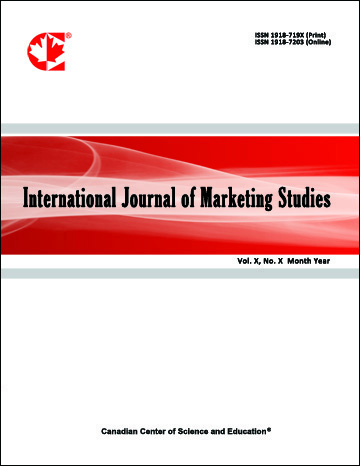Towards a Better Understanding of Consumer Behavior: Marginal Utility as a Parameter in Neuromarketing Research
- Letizia Alvino
- Efthymios Constantinides
- Massimo Franco
Abstract
Understanding consumers’ decision-making process is one of the most important goal in Marketing. However, the traditional tools (e,g, surveys, personal interviews and observations) used in Marketing research are often inadequate to analyse and study consumer behaviour. Since people’s decisions are influenced by several unconscious mental processes, the consumers very often do not want to, or do not know how to, explain their choices. For this reason, Neuromarketing research has grown in popularity. Neuromarketing uses both psychological and Neuroscience techniques in order to analyse the neurological and psychological mechanisms that underlying human decisions and behaviours. Hence, studying these mechanisms is useful to explain consumers’ responses to marketing stimuli.
This paper (1) provides an overview of the current and previous research in Neuromarketing; (2) analyzes the use of Marginal Utility theory in Neuromarketing. In fact, there is remarkably little direct empirical evidence of the use of Marginal Utility in Neuromarketing studies. Marginal Utility is an essential economic parameter affecting satisfaction and one of the most important elements of the consumers’ decision-making process. Through the use of Marginal Utility theory, economists can measure satisfaction, which affects largely the consumer’s decision-making process. The research gap between Neuromarketing and use of Marginal Utility theory is discussed in this paper. We describe why Neuromarketing studies should take into account this parameter. We conclude with our vision of the potential research at the interaction of Marginal Utility and Neuromarketing.
- Full Text:
 PDF
PDF
- DOI:10.5539/ijms.v10n1p90
Journal Metrics
Google-based Impact Factor (2021): 1.34
h-index (July 2022): 70
i10-index (July 2022): 373
Index
- Academic Journals Database
- CNKI Scholar
- EconBiz
- Electronic Journals Library
- Excellence in Research for Australia (ERA)
- GETIT@YALE (Yale University Library)
- Harvard Library
- IBZ Online
- Infotrieve
- JournalTOCs
- LOCKSS
- MIAR
- PKP Open Archives Harvester
- RePEc
- ResearchGate
- ROAD
- Scilit
- SHERPA/RoMEO
- Stanford Libraries
- UCR Library
Contact
- Alyssa SunEditorial Assistant
- ijms@ccsenet.org
